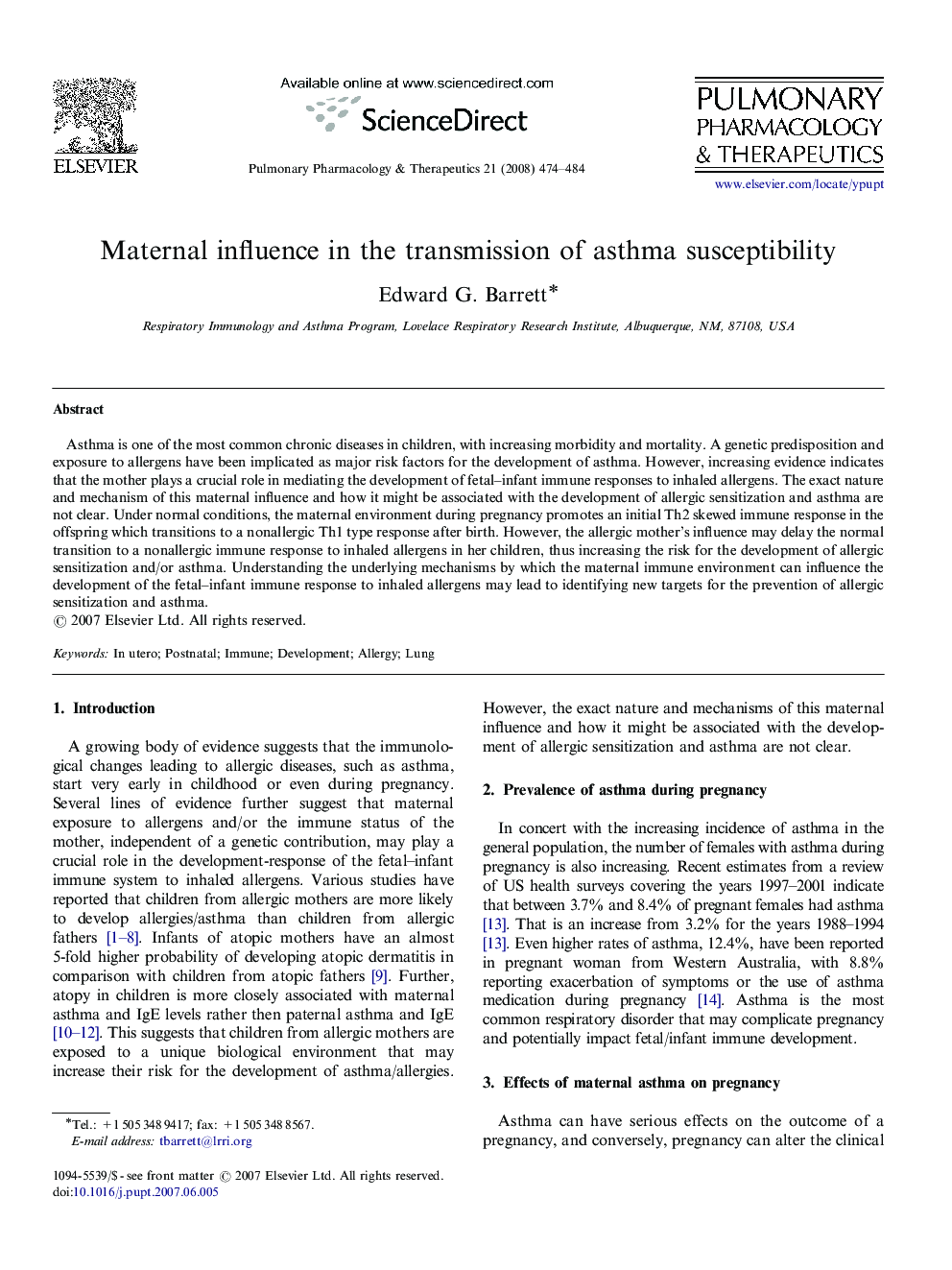| Article ID | Journal | Published Year | Pages | File Type |
|---|---|---|---|---|
| 2567534 | Pulmonary Pharmacology & Therapeutics | 2008 | 11 Pages |
Asthma is one of the most common chronic diseases in children, with increasing morbidity and mortality. A genetic predisposition and exposure to allergens have been implicated as major risk factors for the development of asthma. However, increasing evidence indicates that the mother plays a crucial role in mediating the development of fetal–infant immune responses to inhaled allergens. The exact nature and mechanism of this maternal influence and how it might be associated with the development of allergic sensitization and asthma are not clear. Under normal conditions, the maternal environment during pregnancy promotes an initial Th2 skewed immune response in the offspring which transitions to a nonallergic Th1 type response after birth. However, the allergic mother's influence may delay the normal transition to a nonallergic immune response to inhaled allergens in her children, thus increasing the risk for the development of allergic sensitization and/or asthma. Understanding the underlying mechanisms by which the maternal immune environment can influence the development of the fetal–infant immune response to inhaled allergens may lead to identifying new targets for the prevention of allergic sensitization and asthma.
